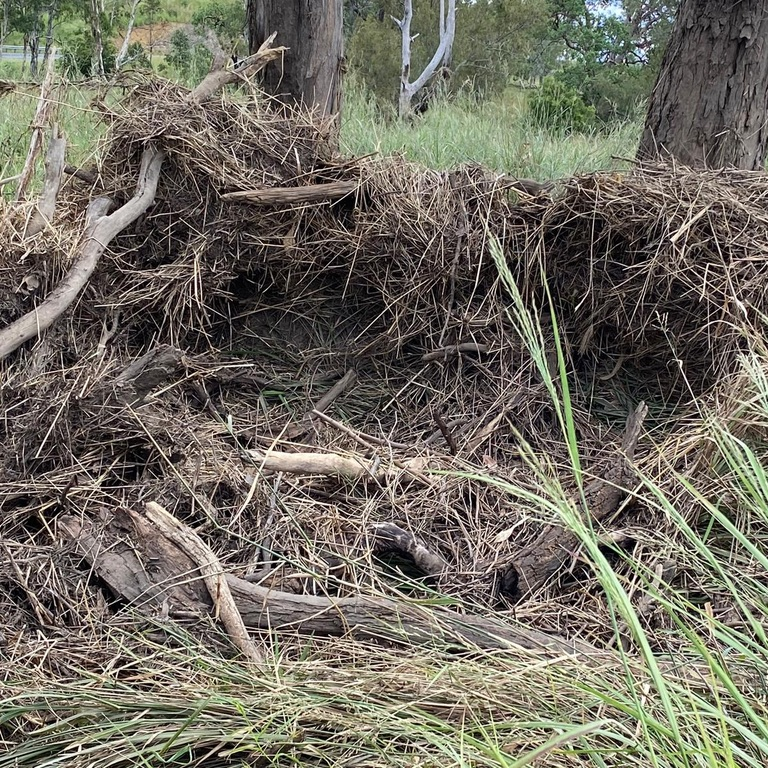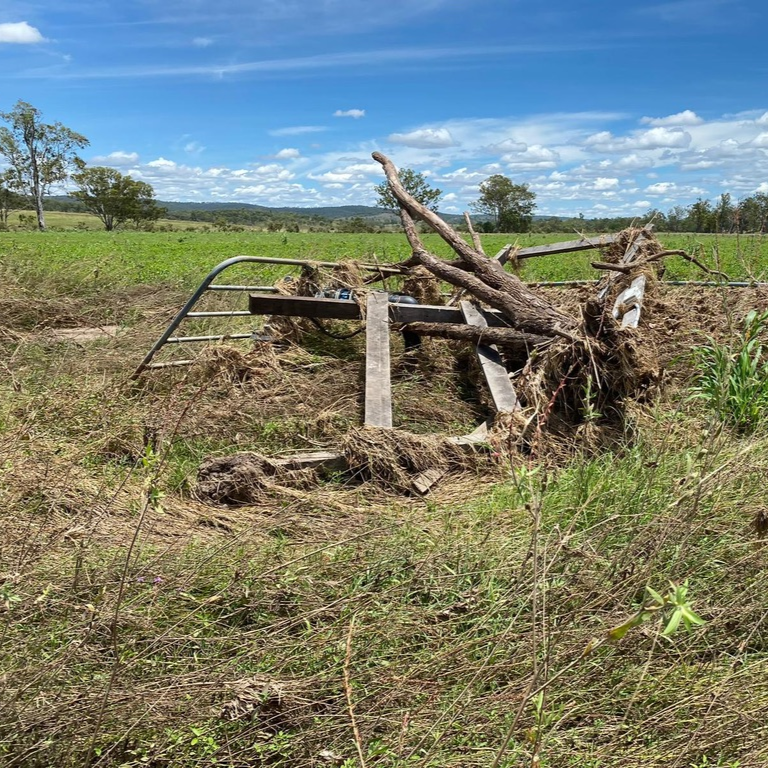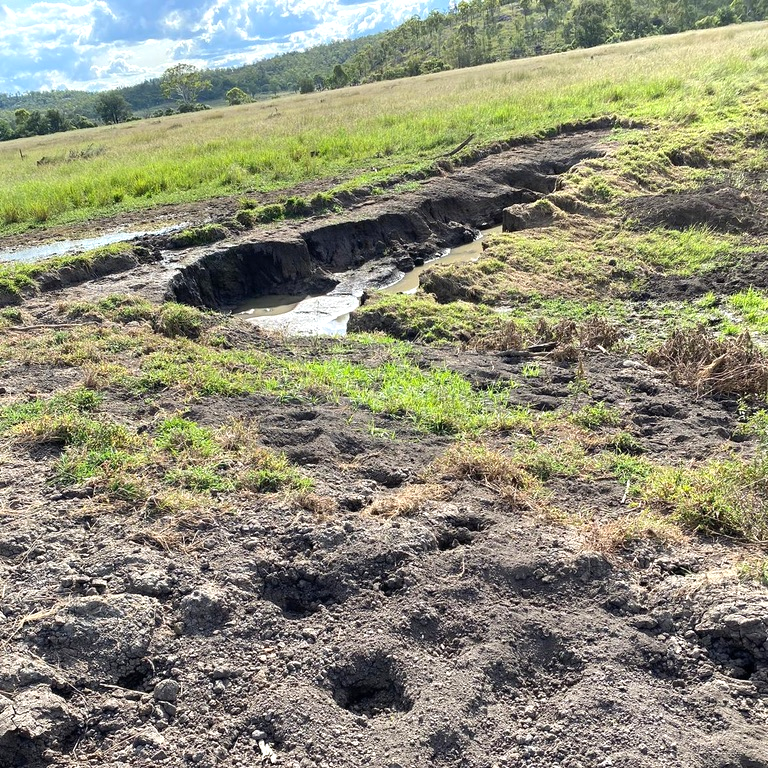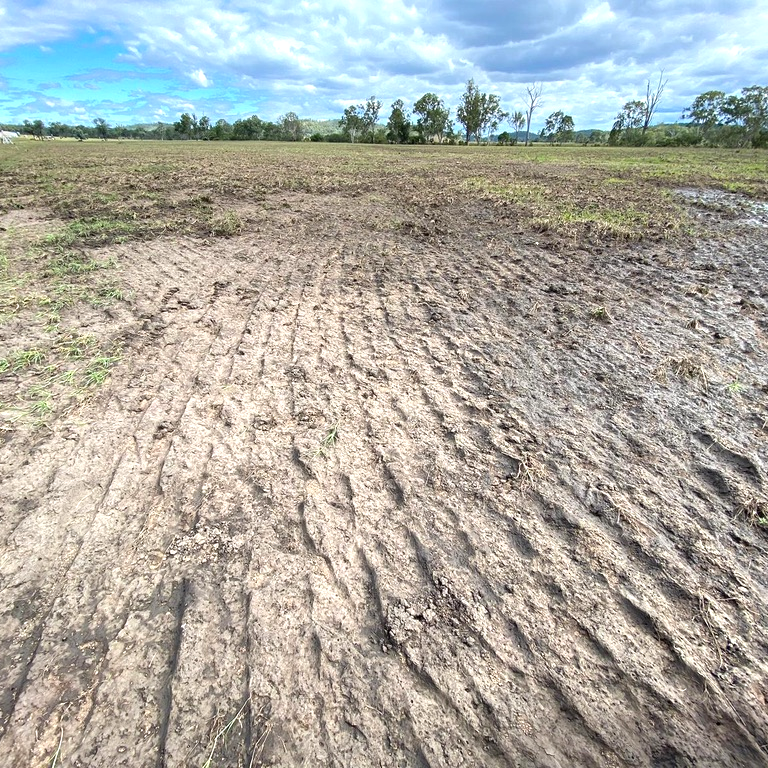A helping hand to deliver a steady stream of flood management plans
Specialised resilience officers are helping Queensland primary producers not only recover from recent natural disasters but build resilience for future events.
Following a series of natural disasters in 2021 and 2022, the Australian and Queensland Governments launched the Industry Recovery and Resilience Officer (IRRO) program to support primary producers in 22 local government areas (LGAs) impacted by the events.
Since then the IRRO program has delivered immediate and significant results for these Queensland regions.
For example, Burnett Mary Regional Group (BMRG) and Queensland Farmers Federation (QFF) IRROs have worked with primary producers to develop more than 120 flood management plans.
These plans support producers to future-proof their properties, helping them with water management and guiding ideas to reduce the impact of high rainfall.
They outline potential actions to prepare for, respond to, recover from, and reduce the impacts of heavy rainfall events.
BMRG’s Virginia Kelleher said IRROs visit a producer’s property, complete a flood management plan, and run through support services, including grants and funding opportunities available to eligible primary producers.
“We're able to help landholders with planning improvements in areas such as infrastructure, ground cover, rotational grazing, soil health and landscape hydration,” Virginia said
"This also means these landholders are rain ready for wet seasons, so they're in the best position to harvest and maximise that water."
Although having a flood management plan won’t stop a flood from coming, it can reduce the impact of such disasters.
Making sure soils and pastures are healthy with good root systems and plenty of vegetation can make a difference during flooding events.
Producers Rhys and Amy Innes from Marcella near Booubyjan in the Gympie region said developing a flood management plan prompted them to be proactive with their farm management.
“One of the things we think is really important is to put in some infrastructure so we can keep our cattle and livestock up on higher ground and out of the flood,” Amy said.
“Last time we had cows and calves washed away, and we’re seedstock producers, so we can’t afford to let those genetics go down the creek.”
The IRRO program is jointly funded by the Australian and Queensland Governments under the Disaster Recovery Funding Arrangements (DRFA), and having been embraced by producers the initiative has now been extended till December 2024.
The program supports primary producers in 22 LGAs impacted by disaster events, including Balonne, Banana, Brisbane, Bundaberg, Cherbourg, Fraser Coast, Gold Coast, Goondiwindi, Gympie, Ipswich, Lockyer Valley, Logan, Moreton Bay, Noosa, North Burnett, Scenic Rim, Somerset, South Burnett, Southern Downs, Sunshine Coast, Toowoomba and Western Downs.



